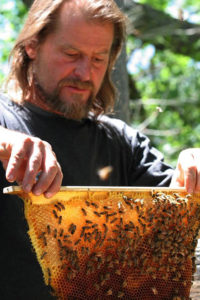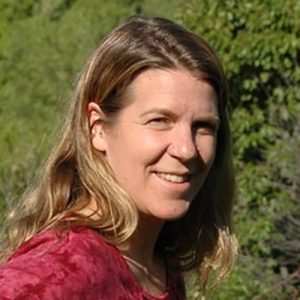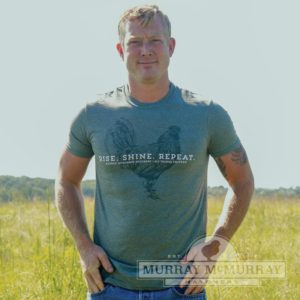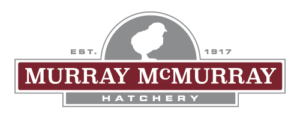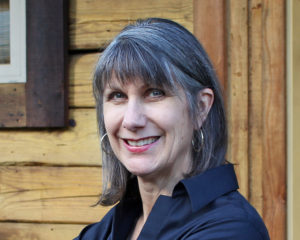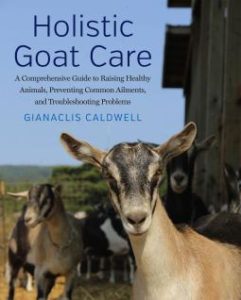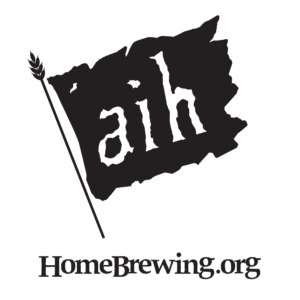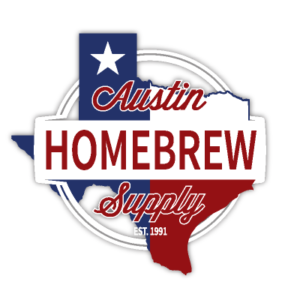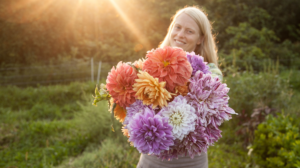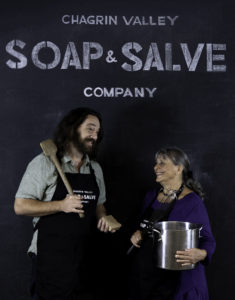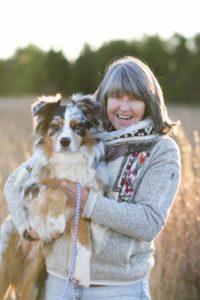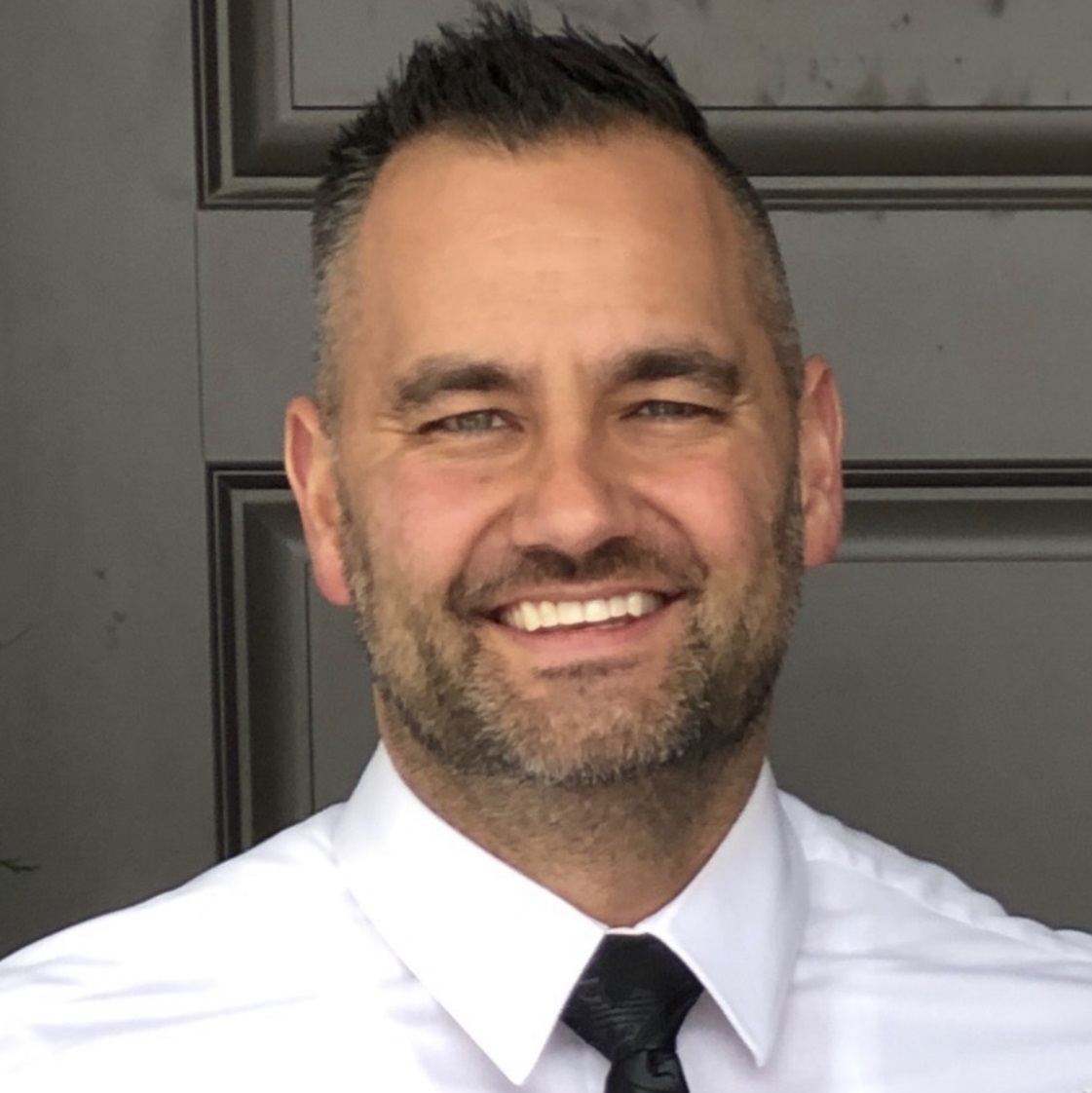Podcast: Play in new window | Download
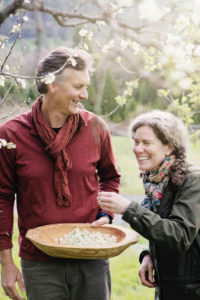
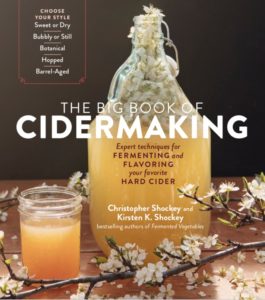
Christopher Shockey and Kirsten K. Shockey join us again to talk about their new book, The Big Book of Cidermaking.
We also talk about an exciting new project they’ve taken on called, Fermentation School!
Fermentation School has online classes from top experts to help you advance your own fermentation skills.
For more on Fermentation School, The Big Book of Cidermaking and other Books and information the Shockey’s have checkout the links below!
Fermentation School – https://www.fermentationschool.com/
Ferment.Works – https://ferment.works/
The Big Book of Cidermaking – https://www.storey.com/books/the-big-book-of-cidermaking/
Transcription
Brian: Christopher Shockey and Kirsten K. Shockey are the authors of The Big Book of Cidermaking. And award winning
Miso, Tempeh, Natto & Other Tasty Ferments, Fiery Ferments and the best selling Fermented Vegetables books that came from their desires to help people eat in new ways, both for the health of themselves and the planet.
They got their start in fermenting foods 20 years ago on a 40 acre hillside smallholding, which grew into their local organic food company, when they realized their passion lay in the wish to both teach people how to ferment and push this culinary art to new flavors.
Kirsten and Christopher lead lead experience experiential workshops worldwide and online at FermentationSchool.com. Helping people to make enjoy and connect with their food through fermentation.
They can now be found at Ferment.Works. or excuse me, they can also be found at Ferment.Works. Kirsten and Christopher, welcome back to the Off The Grid Biz Podcast.
Christopher and Kirsten: Thanks, Brian.
Brian: Why don’t we just start out by kind of going over your new book, tell us tell us what led you to write this new one on cidermaking.
Christopher: Well this is the one I wanted to write from the very beginning, we bought a hand press on the farm 20 some years ago when we moved here. And so we’ve been making a lot of cider since that time and that’s my favorite ferment by far.
So we just had to do a few 100,000 other books before we could do this one. Yeah, and it’s cider season, we have cider apples on the farm. So all those reasons why.
Brian: Was this one of the original fermentation experiments that you guys went with or how did it come about?
Christopher: This is one of the ferments that we did for ourselves, we had a lot of apple trees and so we we made cider for ourselves. The Founding Fathers would let you make 200 gallons for yourself and we came darn close nearly every year.
Friends and family, I trained as a cider maker. And we were going to do cider instead of fermented vegetables and all that other stuff.
When I learned that to run a little cidery, the most important thing is you can repair equipment, used equipment, I can look at a pipe and it’ll start to leak. So I’m good with grey tape and after that it falls down. So I said to Kirsten, I love drinking it, I love making it, but I’m not so sure we’re going to be a good small cidery. And that’s how all the other fermentation stuff started.
But in the response back from the book so far, it’s been really positive.
Kirsten: Yeah, I think this one’s much easier lift than the last one. Most people know what cider is. Most people are interested in fermented beverages and are willing to maybe take that on as a first ferment, where as miso or, you know, fermenting a bean or grain eating stringy natto, or growing fungus around a bean, like tempeh is just asking a little more of the American general, American population.
So yeah, it’s been popular and it came out well, it was supposed to come out in June, but it came out along with Apple season, so I think we’ve gotten a lot of nice feedback.
The other thing is, it’s a very beautiful book, it was shot here in three different times of the year, but all on our farm. So it feels very personal that way too. And kind of a tour of our space.
Brian: Oh, fabulous.
So for those of you who are just tuning in regardless of when you’re listening to this, that we’re talking in November of 2020, we’ve had kind of a wild ride with 2020 with COVID-19 and all the rest that goes on with it.
How have you guys been able to serf through that?
Christopher: Well started out by canceling Japan, Ukraine, Chile, two Mexico’s plus 30 some events in the United States. So when we talked last time, we had pivoted from a small fermentation company to authors and educators going around the world teaching people.
New pivot, that was completely pulled out from under us like all other artists, and anybody that makes a living going around teaching people someplace else.
The benefit was we created a fermentation school. And the idea was to grow the reach because we have people that have bought our books around the world that we would never get to, you know, we’re just not going to be able to get the Kazakhstan or Iran or other places that they want to have us teach them.
So we launched the fermentation school and the idea was to really change some things.
So one thing is there’s a lot of very good, excellent female fermentation teachers around the world. There’s a few male teachers that get all the attention. And so one of the things that the school is about is it’s all women who are authors and fermentation experts.
So there’s two Kirsten’s and Meredith Lee, who’s in North Carolina who’s an amazing charcuterie butcher really a badass butcher, like women with knives, cutting through a carcass, just crazy. She’s so good with meat.
And then we’ve lined up, we’re going to be announcing in the coming months at least, we’ve signed at least three other women who are leaders and things like sourdough and cheeses, chefs that do work in the kitchen around fermentation. So it’s really exciting and we’ve designed it so that the artist gets the money having been through the publication world. When we have people say, Oh, my gosh, you’ve sold hundreds of 1000s of books, you must be rich?
We say, Well, that’s a lot of quarters that you can stack up, that’s true. But if you make less than $1 a book. So the publication world’s really tough, that’s the other thing that’s changing, you know, for your listeners who have published or want to get published or out there, the world’s changed in the last 10 years, 15 years pretty dramatically.
And so that’s your capital, that’s your wealth, the person that knows the information really has to figure out how are you going to reach the most people and keep the most of that capital for yourself.
We had this concept of a school where we kind of handpick these best teachers who don’t have a platform yet, besides their books and teaching, they’re in the same boat we are, designed the school so that it’s more of a cooperative, you know, you put your work in, and you get most of that back out again.
Then the school uses a small bit of that just for advertising to keep the lights on. But really, it’s a cooperative of amazing women teachers.
We launched it in May, we’ve got maybe seven or eight courses on there right now. And we have already localized into Spanish on one of the courses, we’ve got two other courses that are being translated into Spanish.
The idea is that these courses will be in multiple languages.
Yeah, that’s what we’re doing now.
Kirsten: I think the other piece also we’re going to with that operating money, if there’s extra, they’ll be scholarship funds and things that come out of that.
Brian: Oh, great.
Kirsten: Yeah.
Brian: You went from speakers and authors to becoming basically headmaster’s of your own school. It’s amazing accomplishment in be able to pivot that quickly is pretty fabulous.
Where’d you get your first students, where were the first people from?
Kirsten: Our first class, it was fun, we launched it May 1st and it was flower power. It’s just a fun little class about capturing wild yeasts for fermenting sodas or cider or you know, whatever fruit juice, you want to ferment.
It was during the time people were just at home. And so a lot of folks, you know, really loved the idea of going around their neighborhood or in their own gardens and seeing what wild yeasts they could capture and taste those flavors.
I’m going to say I think most of the kind of the students came from Instagram or social media, perhaps or newsletter as well. But you know, so far, our reach is only the people we can reach either with our newsletter or on on social media.
We don’t have any other big channels yet. Yeah, working on it, trying to figure out ways to reach people.
That’s the biggest challenge, right? You can put anything out there, but people need to find it. Like podcasts, right?
Brian: That’s right. Absolutely.
So they, the new teachers that you’re bringing on, and the people that are coming on to put on these courses?
Have they brought audiences with them as well?
Do they have followings of some sort that they can also communicate it to?
Kirsten: Yes, many of us do supplement or writing income by teaching instead of each of us kind of having our own platform that people are trying to discover if we all pull together, then my audience will find Meredith’s charcuterie classes, and her audience might find our site or class or whatever, you know.
And the other idea that I think is going to be really exciting once there’s a number of teachers and the content starts to really grow is that students could take tracks like, for example, this doesn’t need to just stick to strictly like a project where you take a cabbage and learn to ferment it, or you know, some meat and learn to make sausage out of it.
What if there’s gardening classes or composting classes, or there’s a regenerative agriculture track where it really is talking about growing the beans in no till methods to build soil and then taking those beans and fermenting them into miso. You know, you get these different teachers, these different voices to kind of take something that’s seeing, you know, we tend to see things in small bites but then kind of bringing back that whole that’s like the bigger picture right now.
There’s the classes we can get out as we get out because all of us are now teaching ourselves right Christopher’s behind the camera and has taught himself editing which is something he’d never done before. I’m just trying to learn to look at the camera, we bring our granddaughter in and for her, it’s second nature. She’s like, Oh, yeah, I can look at the camera. And I’m like, oh, man, it was so easy.
Brian: So much a sign of the times, but you’re taking such great advantage of it. And you’re finding the ways to be able to grow in a very organic manner, which is fabulous.
All of these people, these are connections that you’ve already had previously, right, in your travels, and in your previous stints with the Mother Earth News Fair, and other things, that’s how we met, is that where you’re meeting all these people and that’s who you’re bringing in?
Kirsten: Yeah, whoever’s reached out to us and gotten on our mailing list through or our website, or Ferment.Works website, that Ferment.Works website, also links to fermentationschool.com.
And so, you know, that’s where I guess the traffic that we don’t really know where folks are coming from comes in. But the rest is, yeah, a lot of folks that we’ve met over the years teaching, or just followers that you get when you’re playing that game, which, of course is also very dependent on if the algorithm gods are in your favor that day, when we’re announcing things right?
That’s a big mystery to all of us.
Brian: What other types of ways are you guys looking at marketing yourselves?
Are you looking at paid advertising or any other any other functions?
Christopher: You know, working off the free things, we still speak, everyone’s pivoting right as well. So, you know, festivals are now being held online.
We just nominated for award in the culinary world. So that’s good, great advertising for us as people are looking at those nominations. And we had the awards night about a week ago or something like that.
We were bummed that we weren’t in Pittsburgh, or New York at the award ceremony, you know, here’s the three finalists. But when we lost, we were really happy we were in our own living room and not at the award ceremony and having to do the, you know, Denzel Washington, I’m so glad you won again, and not me.
Absolutely, you guys deserve it. Thinking, oh, there’s no fairness in the world.
So those work, and then we’re using a platform called Thinkific, which is a nice platform. So we’ve really optimized SEO on that. It’s a combination of marketing, getting people to know you’re there. And then really sales once they’re there, we have a pretty high rate of, we have free lessons within a class so people can kind of get a feel for what the cadence of it.
Am I gonna like to watch Kirsten teach this class, what is this class even about people would buy blossom flower power, not even knowing what blossom culturing yeast is about.
And so get them there, show them as much as you can, so that they feel comfortable about that, and then help them make that purchase. What we haven’t done yet is then go back and look at the people that haven’t bought yet and figure out what can we do to help them make that decision?
We’re just now starting to work on bundling. So as Chris was talking about, you know, if someone has learned how to make sauerkraut, would they like to figure out how fermented sausage to go with, for example?
And then how about a cider to drink with that to you a full meal deal kind of going on there. So we’ve got that going on, trying to figure out once they’re here at the fermentation school, how to help them make the right decision how to help kind of nurture that we’re going to be launching a community area.
And so that people can share what they’ve made. Like, hey, look at this, look what I made, you know, in a place that’s safe, kind of vetted because they’re in the school.
So they’re not going to get spammy, and get a bunch of people trying to sell them other stuff. They just get to talk about their permits, and ask questions. And again, it’s about that’s what the school would be about somebody in the hallway would be talking about something like that.
Those are the kind of things I’m paid as part of it. I think the best part about paid is you got to figure out what people are searching for right?
Then own those things. And so we’ve kind of worked that out. So we’ll be doing some of that before Christmas, trying to pick that up as well and seeing kind of tracking that see how it goes.
Brian: Fabulous.
You haven’t been involved with it that long, only since May. So we’re a little less than a year that you’ve been building up this fermentation school.
So far, What do you like best about this new format and this new kind of industry that you’ve inserted yourself into?
Kirsten: I love waking up in the morning and seeing somebody in India but a class the night before. I mean, I think that’s just magical. It’s magical on two levels. It’s magical to make money while you sleep. And it’s magical to think that helping people take responsibility for their food or feel more connected with their food or feel healthier or whatever it is that brings them to fermentation and so to be able to reach people in places that that we would have never been able to reach.
You know, I mean, the books go travel without us, but to reach them in a more personal way, I think that’s pretty cool. I mean, there’s a lot that, you know, with technology that drives me crazy.
But there’s so many things that do make the world smaller in a positive way. For me, that’s it. It’s definitely not standing in front of the camera. I’m still getting used to that.
Christopher: You should talk about the fire relief, too. That was pretty cool.
Kirsten: Oh, yeah. So we also took our basic fermentation class, which is just sauerkraut and pickling, and made it very inexpensive, it’s 14.99.
And all the proceeds go to a group here in the Rogue Valley doing fire relief food, and they are serving meals, full meals. And they intend to continue it throughout the year as long as people need it.
But good food from farms, you know, not prepackaged meals, but created by chefs. And they are they’re doing it, they’re serving a lot of meals. We put that out to our audience and I believe we’re able to donate from the sale of those classes about $500.
The other light kind of neat pieces, somebody anonymously from Australia said, let me buy three classes and I want the money to go to the fire Relief Fund and also find three people that are in need that would like to take the class. So just that community building around even this local disaster that we experienced a month and a half ago now or two months ago. Cool to have that opportunity.
Brian: Yeah, absolutely, right on.
Tell everyone a little bit about your personal situation with that. We had fires here, for those of you who aren’t familiar in Southern Oregon, during the year of 2020, on top of everything else, some really disastrous fires that affect you guys personally?
Christopher: Kirsten’s sister and her husband evacuated to our house first, they were in that Talent / Medford area.
And then as the fires got closer to Jacksonville, we evacuated my mom who’s in a trailer park there in Jacksonville, she’s she’s handicapped so it takes a while to move her somewhere. And we said sooner than later.
So at one point, we had Kristen’s sister and and brother in law, my mom out here and then the Slater Creek Fire started, and suddenly now we’re the ones and the talent fires to calm down. So they all move back to their house and we prepared to evacuate here.
And we never got past stage one, but.
Brian: Oh good.
Christopher: And these valleys, it is so dry, as you know and it goes so quickly. And we live in the forest. So you know, it moves very fast and so it’s like a lot of people around the country and especially in this area, you know, in the spring, you get all of your photo albums and everything you want, and you put them in crates by the door in the fall when it finally rains, which it is yet to do.
But hopefully soon, right, we’ll put our photo albums back on the shelves. And and we’ll start over again next spring.
Kirsten: Yeah, I mean, it’s November 2, right. And it’s supposed to be 80 degrees today. And as we opened all the windows, because it’s so warm in the house. It’s really not the weather it’s supposed to be but I’m actually smelling and I’m looking out there and it is a little hazy again.
I think that the Slater fire, I know it’s still burning. Luckily, the area’s mostly been clear, but I kind of feel like maybe I’m smelling smoke again. So it’s just yeah, it’s just a whole different world that way.
Brian: I think you guys just keep rolling with it and you can keep moving along. So many people I think feel like just throwing their hands up and just saying how the heck with it doing as little as possible to keep rolling life.
I mean, you’ve built an entirely new industry for yourselves overnight. And that’s fabulous. It’s really commendable.
If you could change one thing about this new form of putting on classes online, what would you change about it?
Christopher: We both miss being in front of people. That’s the hardest part is for I even in front of people, I have no problem having Kiersten be in front of 1,000 people and be supporting her all the way.
So it’s not that part. It’s just being in that room of people of their understanding or hands on when they’re trying to learn something and seeing that face when they’ve got their hands on something, and they’re just like, wow, I made that!
And in this format, you’re reaching more people, but you just don’t see that you don’t know how they’re doing on the other end.
We get a lot of pictures of things on counters around the world, which is great, but it’s not like the human aspect of just seeing that aha moment. So I think that’s what I miss. I miss the human interaction of it.
What about you Kirsten?
Kirsten: For sure, the part I missed the human interaction.
And I mean, of course, going to these fabulous places, you know, some of them might have been really fun with the online classes that we’re doing, I really still prefer that though, than trying to do sort of a live zoom class. We’ve done a few of those and you know, you get a little more of that interaction. But it’s so awkward. And it also is, so energy sucking.
In a room, you can have so many people, but you’re feeling their energy back. But when you’re trying to monitor a screen with these tiny little squares and unless everybody’s looking at their camera, it looks like they’re not looking at you.
As soon as you’re looking at your camera, right, I don’t see you, Brian. But now it looks like I’m finally looking at you, right.
So for me, I actually enjoy kind of having the time to prepare the lesson, Christopher does all the editing, we add text with it, we make a downloadable workbook. And I feel like if we can’t be in the room with the people at that moment, if we can try to hit different learning styles by providing information that’s recorded, as well as written, that we’re hitting different learning styles, and it’s kind of the best we can do.
And it’s also curated, so that we’re not jumping off on a tangent or anything in the same way that we might on a zoom call. We’re in a room that of course is wonderful, but on a zoom call, it’s just hard.
Christopher: So if I could add the thing, I love the best. I don’t know if I ever remember if I answered that or not. But it’s outtakes.
Oh, my God. I’m the person who stays in the theater when the movies done hoping they’re going to get the outtakes. Sometimes, depending on the movie, it’s the best part.
You think, okay, I was worth the money to see that. And so, you know, learning how to do video editing, teaching myself, basically so I could have outtakes of Kirsten and I could put those in at the end when we’re rolling credits is absolutely the best part. And she knows I’m going to do that.
So sometimes when she screws up, and that’s a really good one. I’m just smiling behind the camera and you can tell she’s thinking, Oh, no, I’m gonna see that one again. That I really like, because I think it brings kind of that, you know, it can look like she’s got everything so organized and together. And when people see outtakes, it’s like, okay, she messes up sometimes, too. That’s really great, I need to know that.
Brian: Absolutely. That’s great. That’s something you wouldn’t naturally expect. But that’s a great, great perspective on it.
So if we were to get back, let’s say a year from now, and we’re gonna look back over fermentation works, where it goes from this point over the next 12 months, we look back, what would you say would have had to have happen for you to feel happy with the results?
Christopher: I think for the fermentation school, in a year we’ve got six to 10 different instructors, all with one to five classes. So somebody can go there and people really see FermentationSchool.com as the place and around the world to go.
We’ve got a process for localizing and translating those. So you know, Spanish speaking countries have been a huge one for us. And so, but also German speaking countries, for example, those are crops and things like that, that we’re also localizing and translating to the markets that really want that. So we have a mechanism to do that.
And for new artists coming in, they see this as the best place to go, a great place to go for their talent and then it just kind of runs.
I guess the other dream, which maybe this is gonna have to check in again in two years is when you say Christopher, you said it was just going to run itself?
But I’m not sure if that’s a one year or two year goal. But you know, I think every business owner would like to see a place where it’s really running itself and a lot of situations.
So you know, you got to build that up. You got to put things in place even now so that it’s not so much handheld along the way.
Brian: What takes most of your time, when you talk about it running itself, what right now would you have to have automated for, for lack of a better word?
Christopher: Let’s just talk about the process. So from the time we sign artists up, somebody has to create the video kind of layout, what the look of it is how they’re going to teach it.
For some people, they haven’t done any online stuff or very little online stuff. They’re used to being in a room.
So really just that coaching of what’s your look going to be how are you going to teach what other people are doing. They get familiar with other people that are already on the site, they have to create their own things and get it out there. Then it’s coaching and helping them with the marketing to bring their people to that place.
So I think it’s that starter kit, kind of for an artist which is you know, here’s all the things you’re going to need to do. Here are some examples exemplars from other people that have done it just like you, so how do you do that?
How do you put it together?
How do you market it?
And on the back end, there’s just the books of, you know, when we sell a class, there could be an affiliate, and there’s a percentage that goes to the affiliate, then there’s just the payment processing that takes place.
Then there’s the money that goes to the artists and some percentage goes to us. And so that whole piece should be more automated than it is.
And right now, at our scale, we can still do that but eventually we’re going to need that to be automated. Because if we’re talking about 100 or 1,000 sales a day, will no longer be able to do that by hand. So that’s another big, on my side, that’s another big thing I’m trying to figure out how to do.
Kirsten: I think on my site, the creation of the content takes a lot of time.
Each time we do a class, it gets a little easier, we learn more as the process goes. But right now, we’re always have a class in development. And we’re always we got a lot of ideas out of subjects, you know, whether they’re sort of longer form courses, or just really smaller individual classes.
But that point, I think, where there’s enough out there that we don’t feel like we always should be working on getting another class out there. There is enough rounded material and content that if we go a month or two, or three without ourselves putting a class out there. That there’s still enough on there that it’s because everything we’re putting on there anyways, evergreen, so it’s kind of like, once the course catalog is filled out a little more, it’ll feel like it’s running itself a little bit more as well.
Christopher: I also learned to sail during the pandemic. So I have my sailing certificate I am now I can Captain up to a 40 foot sailboat. So we’re just waiting Brian, now for we have two months, we don’t have to create content that’s running yourself, let’s go sail on a sailboat.
Brian: Wow, put the all these pieces together. That’s really cool. It’s great to have some personal things off on the side to apart from everything else. Not that you don’t enjoy doing all this, but I know how even the things that you enjoy doing can feel like work or drudgery, a little bit after too long. And so it’s good to have some some distant goal that’s not too distant that you can focus on.
That’s really exciting to see where you guys are going. And you have an idea of what the obstacles that are in the way and you have an idea of how to get around them. So that’s great.
What advice would you have to other business owners maybe that either don’t fit within your fermentation niche, because obviously, if they do, if they fit somewhere in there or there or something related to it, you’d want them to probably try and get ahold of you to see if they can help out with this, wouldn’t you?
Christopher: Yeah, absolutely. If they’re, if anything that we’ve talked about seems like something that they have seen, the things they know being part of, absolutely, they can reach out to us.
I’m Christopher@FermentationSchool.com, so they can just reach out to me and let me know what their ideas are. And we can see if we can make that happen, for sure.
Last week, we’re just speaking to people that are professionals in the fermentation world, we’re talking about small businesses and taking the other ones kind of taking a hobby that you have and turning it into a product.
We spoke to a group about, you know, maybe I like to make beer I make like to make cider. I like to make wine privately.
And now I want to go into a product company, I’d like to see my label out there and see, you know, what are the things that we can do.
We created a little PDF, specifically for people that want to go into site or business, just things to think about. And I’d say some of that’s pretty generic to any kind of business where you have a passion and a hobby and you want to take that to a product, you know, should I do it, or shouldn’t I?
What are the things I should think about?
And it goes all the way to specifically to product but it’s product placement, shelf placement, you know, what’s your channel going to be cider has some very specific things around because it’s alcohol in terms of state and federal regulations.
So understanding what those are that kind of thing.
So we do help people when they have because we’ve done that, you know, we we had a product company so we sometimes help people just think through if you want something on a shelf, you know what’s that look like?
And if you want to still be profitable after you get it on the shelf, what’s that look like?
And if you want to not hate your business after a year, what’s that look like?
Because it’s tough to be a product on and it reminds me all the time when I was trained and I was a product manager in the corporate world so I every time I think of a new product that, oh my God what if we built that in Kirsten will remind me that we’re not a product company in that way anymore. We’re not building things.
I almost got her there, could be something on a shelf and a couple of years that has a label on it. I’m working on that pretty hard with her but building product and selling products on mindset can be tough to figure it out.
Brian: So you mentioned that PDF and everything that you’ve worked on how would people if they were interested in that, is there a way that they can get that from you or find out more?
Christopher: Yeah, so our publishers Storey, S T O R E Y, so it’s Storey.com/Cider-Business. So again, storage comm slash cider dash business. They get there then they’ll have it in it’s a free PDF. They just download it.
They don’t have to put their email in there’s no there’s no give there. They just get it.
Brian: Wow. Yeah, thanks so much, really a great tool. So I’ll be sure to look at that myself.
What can the listener do that wants to find out more about Fermentation School?
Kirsten: Go to FermentationSchool.com It’s that simple. And they will land on the on the homepage and get to Chris through the classes that are available.
Brian: And they could find out everything else that the Shockey’s are doing over at Furmant.Works.
Kirsten: Ferment.Works. Yes.
Brian: Ferment.Works.
Fabulous.
Thank you so much for being back on. Are there any other questions that I didn’t ask you that you’d like to answer?
Christopher: Our favorite ferment, let’s do that one.
Our favorite ferment. I don’t want box Kirsten into cider even though you know I’m going to answer with cider.
So my favorite permit is a cider specifically I was last year we did 56 different kinds of cider for the book. You can imagine if this is your research, you’re getting sort of getting paid to do this for a living.
So we made all these different ciders and I wanted to make something that reminded me of a nice bourbon. So I found a yeast that could go up to 18-19% alcohol which is 36 proof. I babied along, I got some great apples made some cider kept adding sugar, so kept jacking it up. So the yeast would keep eating sugar and making alcohol until we got a pretty high octane hooch.
And then I put that in barrel and aged it in the barrel and it came out it had some okayness, it had just a little bit of burn that you’d say that’s more than a wine, you know, like a fortified wine, almost like a port. gorgeous color.
And the downside of all this is you know, it’s not ever, it’s not magical. It doesn’t just keep creating itself every night, so I drank them all. And I tried to reproduce it. It’s not quite like the first one.
So I’m still dreaming of the last bottle that I drank up that one so I’ll try again this year, we’re gonna, I’m gonna get back on that bourbon pony. To make that again, pretty sure Kirsten’s isn’t a cider though.
Kirsten: No. He knew I was going to say that.
Having fermented vegetables, we have them at least once sometimes twice in a meal because we’ve got a larger basically in our refrigerator of all kinds of preserved vegetables that are either Sauerkraut or Kimchi or various condiments or hot sauces.
So yeah, it’s just nice to have all that around. So I don’t box myself in with really any favorite.
Brian: Oh, great. Thank you so much for coming back on the show. We really appreciate you guys and appreciate your time. And thanks so much for being on the Off The Grid Biz Podcast.
Christopher and Kirsten: Thanks for having us.
Brian’s Closing Thoughts: It’s always a lot of fun sitting down and speaking with the Shockey’s.
If you haven’t heard that original episode, I just want to recommend again, go back and listen to the first episode. It’s the audio quality had some issues with it, but it’s still very worth listening to.
And if anything else go back and read the transcript from it, because it was a great conversation gives you some background as to where the Shockey’s are today, versus where they were a year ago.
Now, I just love everything that they’re talking about here. This is really so key to where we are right now.
But also in anytime of transition, it’s so important for business owners to remain flexible.
Even to the point of changing your entire business model. And going in what seems like a completely different direction, those still plays to their same market, look at what they were able to do, they were able to take a very offline based business, that they were doing a lot of things out there at fairs and doing speeches and doing things all over the world demonstrations.
Then turn that into an online base school, who were they’re really the middleman in trying to bring together people wanting to learn more about these topics with the people that know the most about them in all different areas that is just so inspiring and so many different ways.
And it’s something that you can learn from. I know I’m going to be going back and re listening to this interview a few times because there are so many nuggets in there that they’re consciously or not giving off to us as the listeners and hopefully you got some really good use out of this.
I’m so appreciative that they live so nearby and that they’re a great resource for us here on the Off The Grid Biz Podcast.

